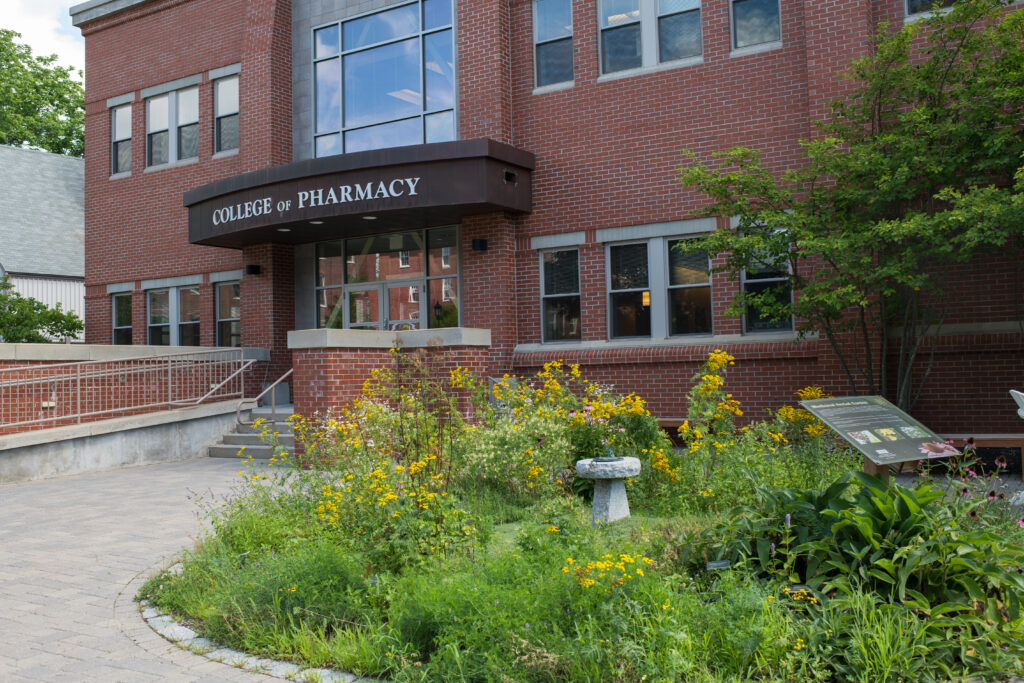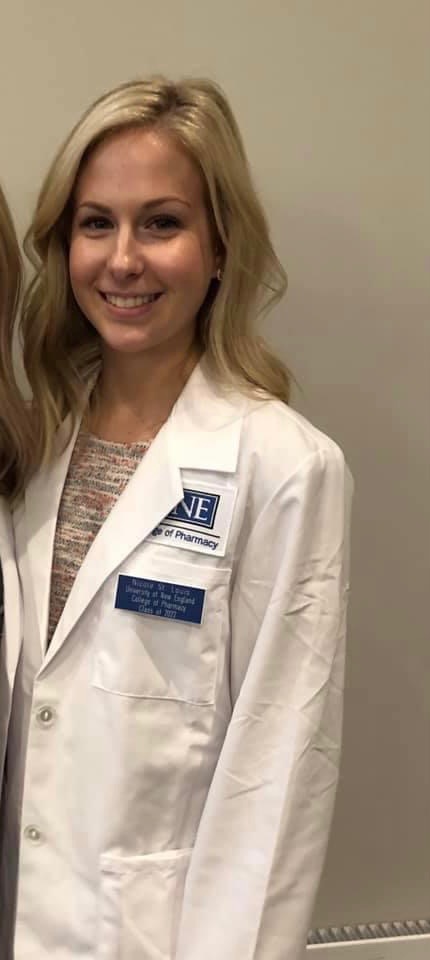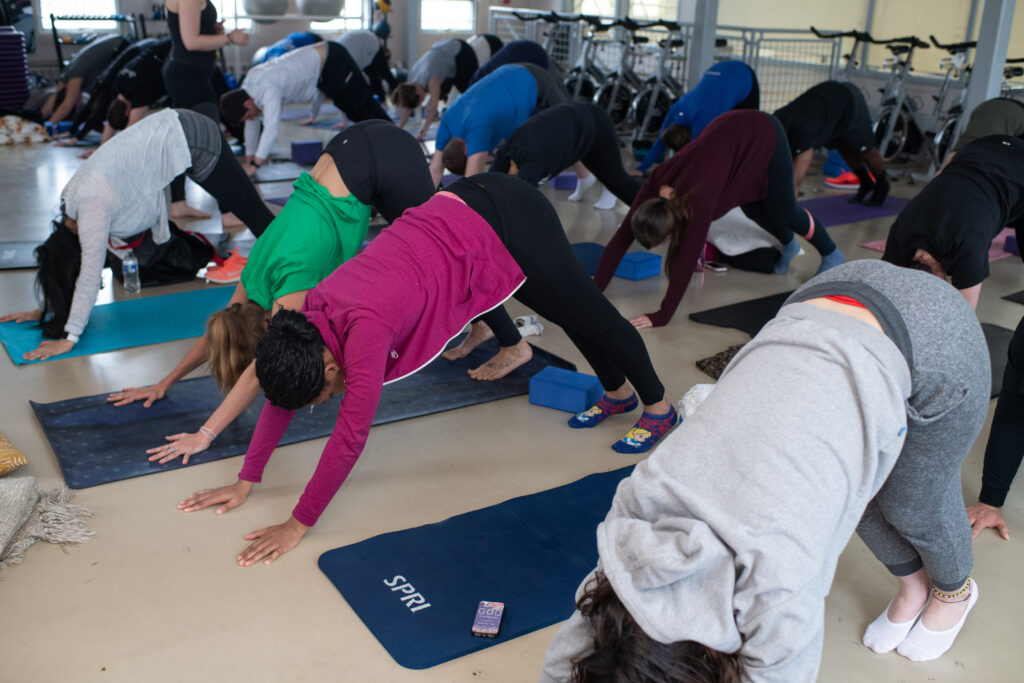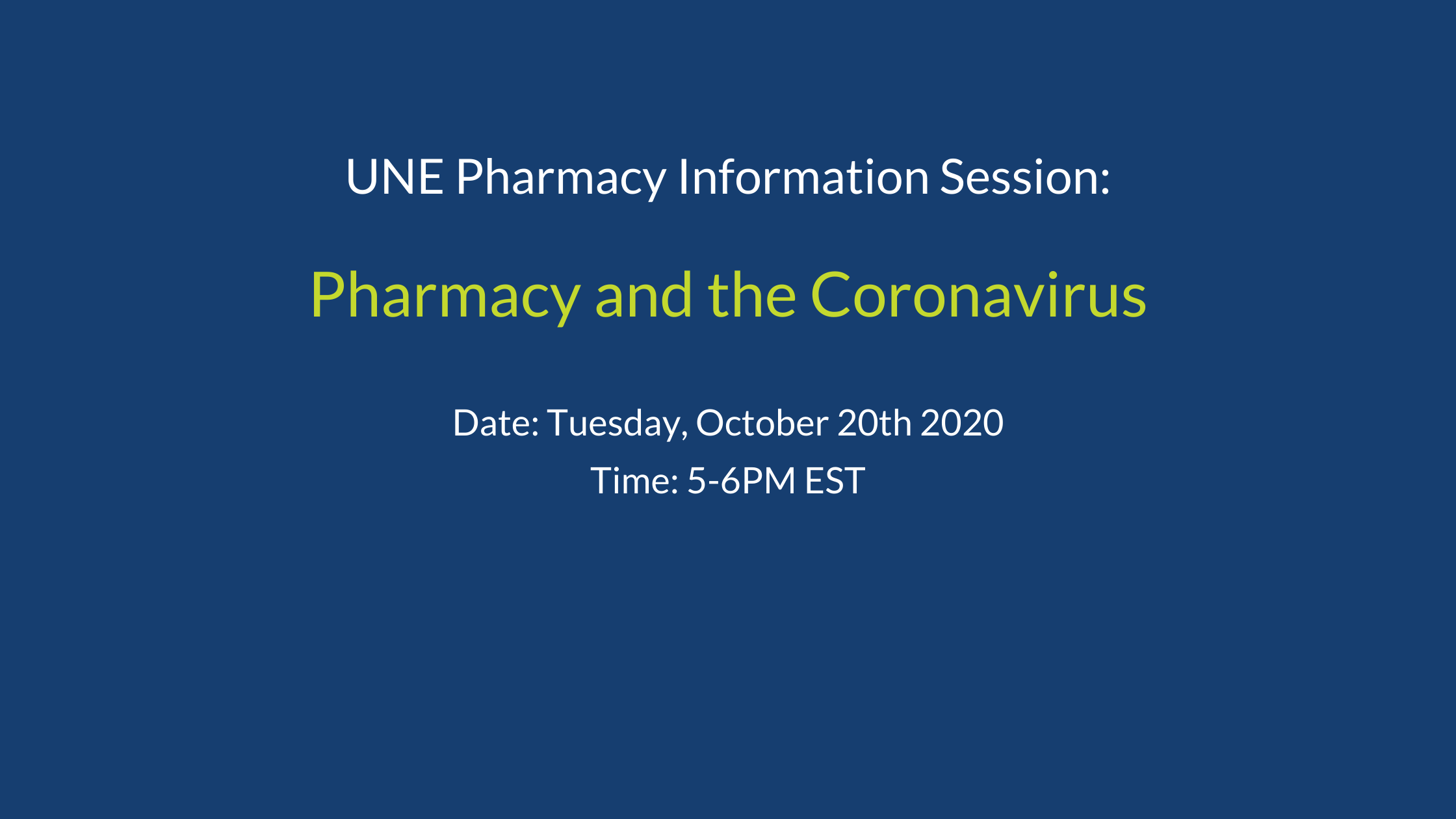
UNE’s School of Pharmacy has three different specialty tracks: Pharmaceutical Sciences, Health Data Analytics and Wellness and Integrative Medicine. The Wellness and Integrative Medicine track educates pharmacy students to incorporate the whole patient’s well-being into the plan of treatment. Graduates will be uniquely prepared to coach patients on lifestyle modifications and proper utilization of nutraceutical products in ambulatory care and community pharmacy settings. P3 student, Nicole St. Louis, shares about her experience in the Wellness and Integrative Medicine track:

Background on Nicole St. Louis and the Wellness and Integrative Medicine track
My name is Nicole, and I am a P3 student here at the University of New England School of Pharmacy. I am currently part of the Wellness and Integrative Medicine Graduate Certificate Program, which focuses on how we can integrate health, wellness and integrative medicine into our practice as pharmacists. As part of this track, I am required to take certain classes and electives, as well as participate in an APPE rotation that allows me to put my knowledge to practice. I have taken classes focused on nutrition across the lifespan, lifestyle medicine, and will be taking an elective next semester focused on phytotherapy.
For this track, I am required to take three electives that are approved as part of the track as well as one APPE rotation that is focused on wellness and integrative medicine. Overall, this ends up being 12-13 credits, depending on which classes I choose to take. As part of the track, I have had the opportunity to learn more about the importance of nutrition, including more information on the importance of macro and micro nutrients, as well as learn more about the importance of emotional health on stress and well being.
Incorporating Wellness and Integrative Medicine into your career as a pharmacist

I am very interested in this area of practice because it allows me to make recommendations for my patients based on more than just pharmaceuticals. For example, I will be equipped to make evidence-based recommendations in terms of nutrition and exercise for my patients, in addition to their drug therapy. As a part of the classes I took for this track, I was required to develop meal plans for people of different ages with various medical conditions, and I also was able to participate in hands-on exercise as part of the Lifestyle Medicine elective. With this practice during class, I feel well-equipped to incorporate these kinds of recommendations for real-life patients.
In my future practice as a pharmacist, I will be able to help patients who want to make lifestyle changes, and I will be able to take a more integrative approach in treating their health as a whole. While drug therapy is an important part of remaining healthy, especially for patients with complex conditions, there are also lifestyle factors that should be considered when helping patients.
Because of this track, I have a stronger understanding of the opportunities that pharmacists have to improve the overall health and wellness of our patients. I am excited to incorporate all that I have learned in this program into my future practice as a pharmacist.


